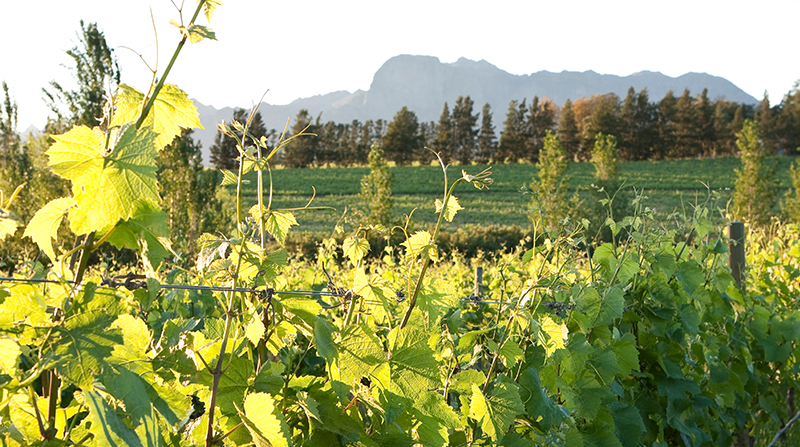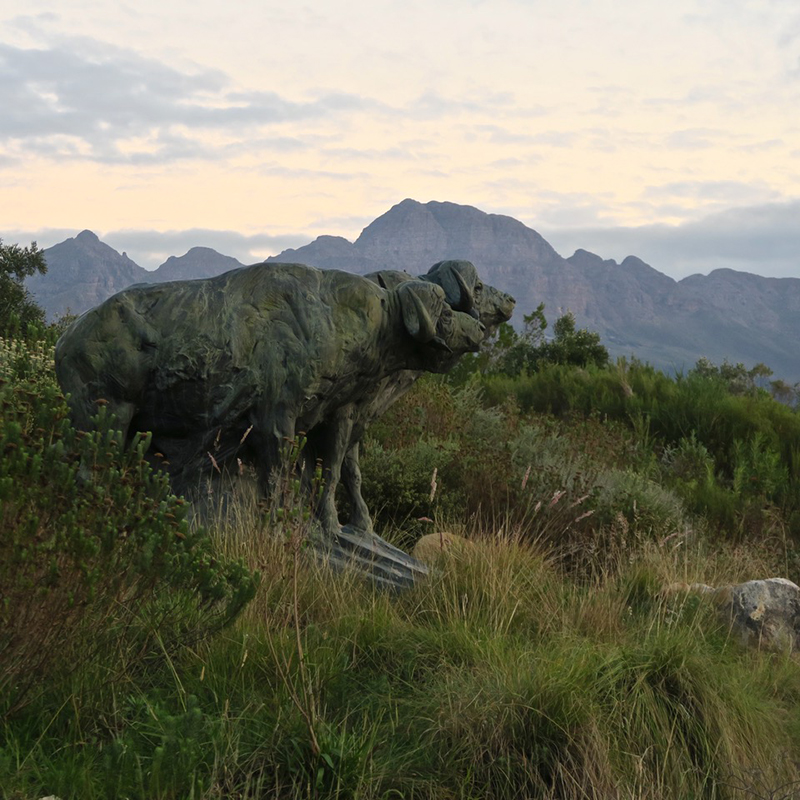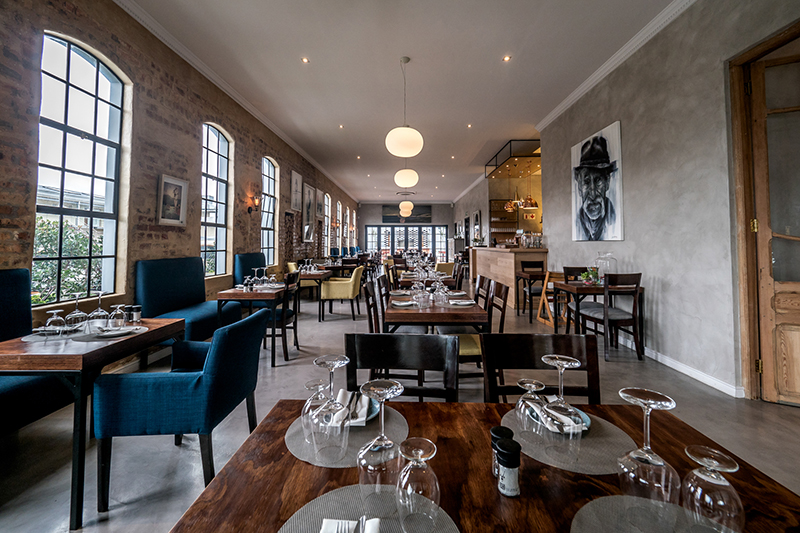

Only an hour’s drive from Cape Town, South Africa’s premier wine-producing region begs for a side trip or a weekend getaway. While the districts of Stellenbosch and Franschhoek are close enough to the city that you could spend the afternoon wine touring and be back downtown the same day, it’s worth slowing down to enjoy not just the vino, but the food, art and outdoors.
Here’s our plan for a two-day excursion to the Cape Town Winelands.
https://www.instagram.com/p/Be7rxOFjVnd/?taken-by=villagetablebistro
Day 1
Leave Cape Town after the morning rush hour and you’ll be in Stellenbosch just in time for lunch. Stop at Seven Sisters Vineyard, one of South Africa’s few black-owned wineries; the proprietors are indeed a family of seven sisters (and one brother).
Sit on the terrace at the onsite The Village Table Bistro and pair a glass of the winery’s chardonnay or cabernet sauvignon with a cheese board of local selections and housemade bread. The menu continues with other dishes the siblings enjoyed growing up, from Cape Malay-style chicken curry served over basmati rice to bobotie, a custard-topped meat casserole.
After lunch, head for Stellenbosch’s Rupert Museum, a unique private gallery specializing in 20th-century South African art. On exhibit this year is a collection of 32 dramatic landscape scenes from across the country by renowned painter Jacobus Hendrik Pierneef. South African Railways commissioned the paintings for the Johannesburg railway station, where they were installed in 1932.

Dylan Lewis Sculpture Garden’s Cape Buffaloes. Credit: Dylan Lewis Sculpture Garden
If you prefer your exhibits to be larger-than-life, go instead to the Dylan Lewis Sculpture Garden. Born in Johannesburg in 1964, Lewis is known for the human figures and giant cats that he casts in bronze, more than 60 of which are displayed among the garden’s native fynbos and other plants. Just make sure you book your tour in advance — visits to the alfresco gallery and the artist’s studio are by appointment only.
Drive past more vineyards with craggy peaks jutting above the fields as you continue on to Franschhoek and settle into your accommodations. The region’s trendiest place to stay may be The Lab Lifestyle Hotel, a recently opened, tech-friendly boutique property on a quiet, residential street. Each of the dozen sleek guest units is equipped with a virtual assistant (dubbed The Lab), enabling you to control everything in your room with voice commands, from turning on the lights to brewing your morning coffee, though you should unplug to sip a happy-hour glass of wine by the courtyard pool.

Le Quartier Français. Credit: Le Quartier Français
If you’d prefer more classic accommodations, consider Le Quartier Français, one of the Leeu Collection properties. The 32-room lodging is set among picturesque rose gardens, European-inspired villas and a scenic courtyard pool, creating a secluded escape.
Don’t worry if you start to feel peckish — you won’t have to wander far to find a great meal. Widely known as a foodie town, Franschhoek is home to several top-notch dining spots. At Reuben’s Franschhoek, noted South African chef Reuben Riffel mixes local and international flavors to create unique dishes like tuna tataki with yuzu and pickled mustard; dukkah-spiced cauliflower samosas; and peppered springbok steak.
Nearby, the aroma of the street-side grill may lure you into the golden-walled Foliage Restaurant. Chef Chris Erasmus regularly forages for wild mushrooms, greens and other local edibles that he pairs with regional game and free-range meats to create a quintessentially South African experience.

Reuben’s Franschhoek. Credit: Reuben’s Franschhoek
Day 2
After a leisurely breakfast, take a morning stroll along Franschhoek’s main street to stretch your legs. Browse the myriad family-run shops and stop to admire the historic colonial French homes that line the avenue.
The Franschhoek area has more than 50 wineries, so you have ample options when it comes to touring and tasting. If you don’t have a designated driver, consider a tour with the Franschhoek Wine Tram. A unique way to see various parts of the valley, the tour offers six different hop-on, hop-off routes, each visiting eight wineries in a double-decker tram and an open-air bus.
https://www.instagram.com/p/BjANo7alD-F/?taken-by=winetram
The purple line, for example, showcases the western part of the wine-growing region with stops at the lush Babylonstoren — known for its farm-to-table restaurant and its excellent chardonnay, Mourvèdre rosé and Nebukadnesar Bordeaux blend — and Noble Hill, which also produces a cold-extracted, extra-virgin olive oil.
After a day of wine touring, you can make it back to Cape Town in time for sunset — though we wouldn’t blame you if you opted to spend an extra day among the Winelands’ vineyards and farms.
